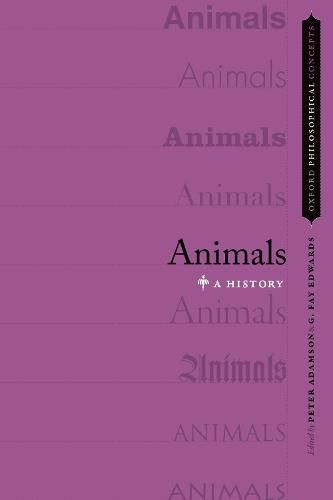Readings Newsletter
Become a Readings Member to make your shopping experience even easier.
Sign in or sign up for free!
You’re not far away from qualifying for FREE standard shipping within Australia
You’ve qualified for FREE standard shipping within Australia
The cart is loading…






Philosophical controversy over non-human animals extends further back than many realize – before Utilitarianism and Darwinism to the very genesis of philosophy. This volume examines the richness and complexity of that long history.
Twelve essays trace the significance of animals from Greek and Indian antiquity through the Islamic and Latin medieval traditions, to Renaissance and early modern thought, ending with contemporary notions about animals. Two main questions emerge throughout the volume: what capacities can be ascribed to animals, and how should we treat them? Notoriously ungenerous attitudes towards animals’ mental lives and ethics status, found for instance in Aristotle and Descartes, are shown to have been more nuanced than often supposed, while remarkable defenses of benevolence towards animals are unearthed in late antiquity, India, the Islamic world, and Kant. Other chapters examine cannibalism and vegetarianism in Renaissance thought, and the scientific testing of animals. A series of interdisciplinary reflections sheds further light on human attitudes towards animals, looking at their depiction in visual artworks from China, Africa, and Europe, as well as the rich tradition of animal fables beginning with Aesop.
$9.00 standard shipping within Australia
FREE standard shipping within Australia for orders over $100.00
Express & International shipping calculated at checkout
Philosophical controversy over non-human animals extends further back than many realize – before Utilitarianism and Darwinism to the very genesis of philosophy. This volume examines the richness and complexity of that long history.
Twelve essays trace the significance of animals from Greek and Indian antiquity through the Islamic and Latin medieval traditions, to Renaissance and early modern thought, ending with contemporary notions about animals. Two main questions emerge throughout the volume: what capacities can be ascribed to animals, and how should we treat them? Notoriously ungenerous attitudes towards animals’ mental lives and ethics status, found for instance in Aristotle and Descartes, are shown to have been more nuanced than often supposed, while remarkable defenses of benevolence towards animals are unearthed in late antiquity, India, the Islamic world, and Kant. Other chapters examine cannibalism and vegetarianism in Renaissance thought, and the scientific testing of animals. A series of interdisciplinary reflections sheds further light on human attitudes towards animals, looking at their depiction in visual artworks from China, Africa, and Europe, as well as the rich tradition of animal fables beginning with Aesop.